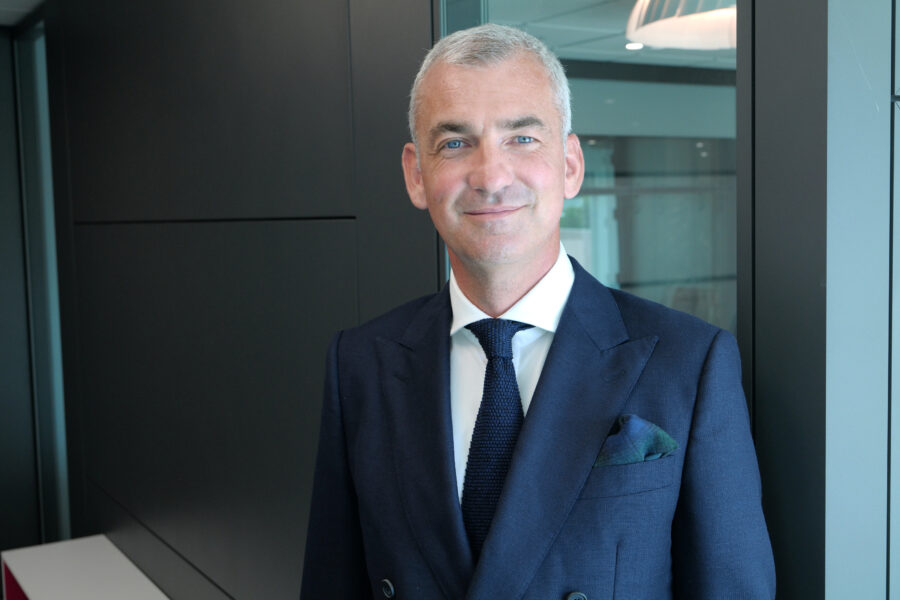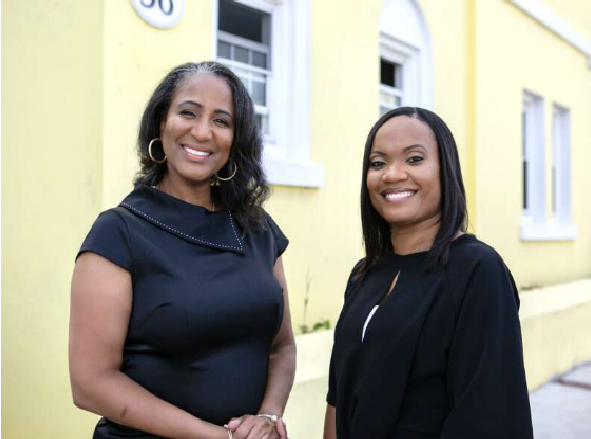(In photo: Denise Carey, CEO and executive director, and Jean-Ann Hayward, head of operations, HOME)
Consumers, employees and communities are raising the bar for corporate social responsibility. The increasing expectation that businesses should be a force for social good has gained significant traction in recent years.
In the age of ESG disclosures and amid scrutiny of “greenwashing”, companies are keen to apply their philanthropic dollars to well-run organisations that can demonstrate progress in improving the lives of people they help.
The knock-on effect is that the bar is also rising for charities competing for corporate dollars. No longer is it sufficient to “do good”. To appeal to donors, they must be able to measure their impact, articulate their strategy and show that they use funds efficiently.
HOME is a young charity that ticks all these boxes. When it launched in 2021, it was immediately clear that HOME was different. Rather than taking the traditional charitable approach of addressing the symptoms of a societal ill, HOME declared its intent to provide a cure.
The simple message on HOME’s website is: “Our purpose is to end homelessness.”
The target is to ensure no people are homeless by 2027 and to sustainably end homelessness by 2032. HOME will hold itself accountable: the plan and its progress will be on public record.
Underlining the magnitude of the work that needs to be done, HOME’s own data found that more than 650 people — or around 1 per cent of the population — were homeless in 2022.

Arthur Wightman, chairman of HOME, is adamant that ending homelessness is both possible and necessary. “Overwhelming evidence from all over the world confirms that in most cases homelessness is preventable and in every single case it can be ended – permanently,” he said.
As Bermuda territory leader for PwC in the Caribbean, Mr Wightman brings considerable business acumen to HOME, which adopts some of the fundamentals of running a successful business in order to achieve its aims.
It holds itself publicly accountable to benchmarks and tracks key performance indicators to effect successful social outcomes. It has also adopted core World Economic Forum stakeholder capitalism metrics which include measurements around greenhouse gas emissions, pay equality and board diversity. In 2022, HOME operated at “net zero” carbon emissions.
Led by Denise Carey, CEO and executive director, and Jean-Ann Hayward, head of operations, HOME operates from its Black Circle headquarters, on Union Street, Hamilton, where it has an eight-bed facility.
There, it runs an eight-week programme where participants receive three meals a day, a free doctor’s exam and help with finding jobs to enable them to move into permanent housing — a pathway to sustainable stability.
The latest statistics show HOME is already having an impact. Since 2022, HOME has prevented more than 70 cases of homelessness through liaison with government agencies and other non-profit services; ended 52 existing cases of homelessness; and provided intensive case management support to 67 previously homeless people.
The key element of HOME’s vision of an end to homelessness is its broader, collaborative approach. “HOME is here to facilitate a whole-system response to homelessness,” Mr Wightman said. “By that we mean that all stakeholders — government, agencies, charities, the religious community and other service providers — playing their roles in a coordinated fashion, with the individual at the centre.
“By taking this approach, we can work towards reform of the current environment, which is service-led and fragmented, to one which is client-led and based on prevention.
“We see homelessness as a public-services matter, rather than solely a housing matter. Individuals who are rehoused need the provision of wrap-around services in order to help their return to sustainable, independent living.”
“The inputs into the plan are intended to be comprehensive. Ms. Carey is ensuring collaboration by inviting those with lived experiences of homelessness to have a real say in ultimate solutions. She is also working extensively with stakeholders across the whole system to gather their views, ensure the plan is suitable for the Bermuda context, and incorporate their proposals. Additionally, the plan will be based on academic research and evidence of outcomes of varying approaches in 40 countries.”
The robust approach to refining and implementing the plan also involves an advisory board, which is co-chaired by Ms Carey and Tinee Furbert, the Minister of Social Development and Seniors, with the Bermuda Government a co-sponsor of the plan.
“We approached a large group of stakeholders and asked them to vote for the best civic leaders to be on the advisory board,” Mr Wightman said. “We asked those who commanded the most votes to join and most of them have agreed. They will be the arbiters of what the final plan looks like.
“Below the advisory board, we have a steering committee, comprising a much broader group of stakeholders, such as court and housing services, police, Salvation Army and many more. They will analyse the guts of the plan and ensure it’s fit for purpose. So, there is massive collaboration happening. We’re trying to bring the system together to achieve the outcome of ending homelessness.”
As it strives to tackle homelessness, HOME aims to emerge as a leader in the Third Sector — a charity that proves how a rigorous, businesslike approach can create extraordinary social value.

